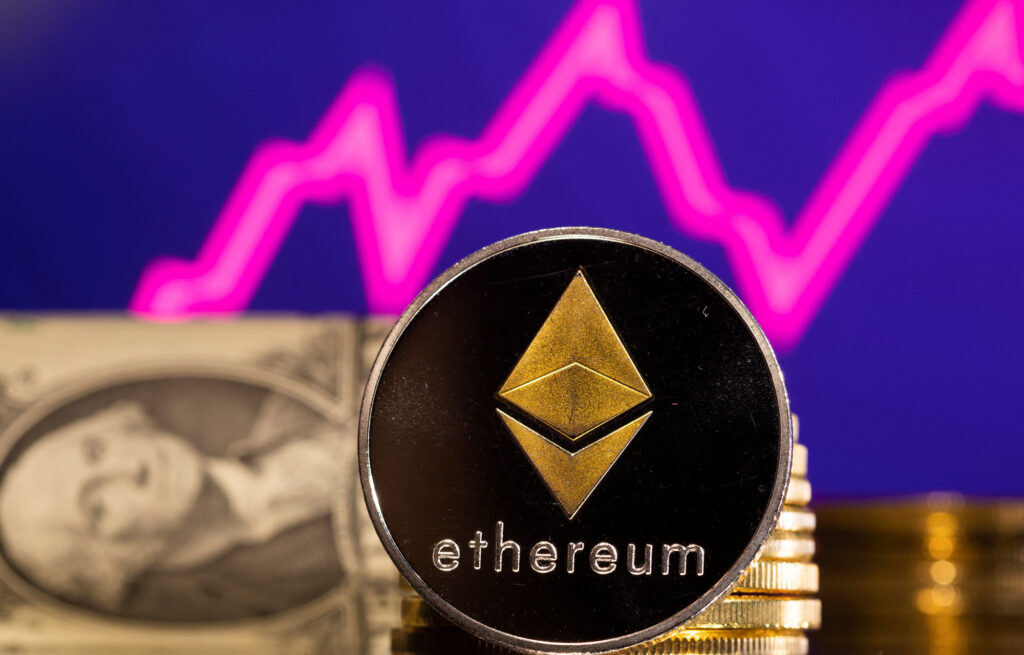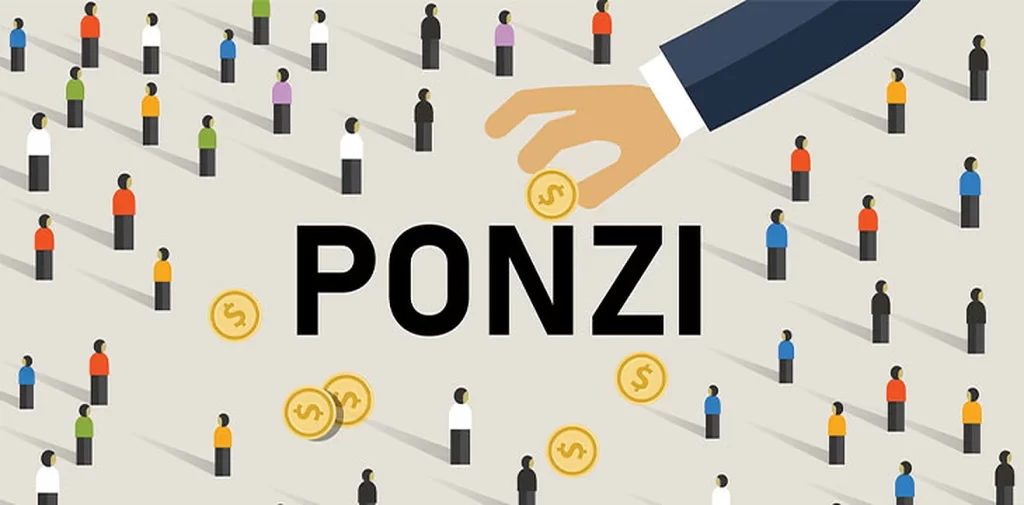Gemini, the New York-based cryptocurrency exchange, has announced its departure from the Dutch market, following the footsteps of crypto behemoth Binance.
The move is attributed to Gemini’s inability to meet the regulatory requirements imposed by the De Nederlandsche Bank (DNB).
However, the company has assured its Dutch users of its intention to re-enter the market once it achieves full compliance with the new regulations.
In a letter addressed to its Dutch clientele on September 26, Gemini urged users to take action before November 17, 2023, when the platform will suspend its operations in the Netherlands due to the stringent DNB requirements.
The letter emphasized the need to empty Gemini accounts completely by that date.
The company’s decision underscores the evolving regulatory landscape within the cryptocurrency space, with authorities worldwide increasing their scrutiny of exchanges and digital assets.
Gemini has recommended that its users transfer their cryptocurrency holdings to Bitvavo, a local cryptocurrency exchange fully registered with the DNB.
Bitvavo, founded in 2018 and headquartered in Amsterdam, is a member of the Dutch Association of Bitcoin Companies.
This recommendation aims to facilitate a seamless transition for Gemini’s Dutch user base and ensure continued access to cryptocurrency services.
READ MORE: Hypothekarbank Lenzburg Joins SDX: Swiss Bank Expands Digital Asset Presence
The cryptocurrency exchange has expressed its commitment to re-entering the Dutch market as soon as it achieves full compliance with the Markets in Crypto-Assets regulations (MiCA).
These regulations, set to unify crypto-related requirements across the European Union, will play a pivotal role in determining the re-entry of crypto exchanges into the Dutch market.
Gemini’s decision aligns with its dedication to operating within a framework that ensures both user protection and regulatory adherence.
Gemini’s move mirrors a similar decision made by Binance during the summer of 2023 when it ceased operations in the Netherlands due to its failure to obtain approval from the DNB.
The DNB’s press officer, Tobias Oudejans, suggested that compliance with MiCA could pave the way for Binance’s return, emphasizing the potential for a different legal landscape for cryptocurrency companies in the Netherlands.
Presently, the DNB has registered 37 virtual asset providers, including well-known platforms like eToro, Coinbase, Crypto.com, and BitPay.
These providers operate within the evolving regulatory framework, adapting to the changing landscape of cryptocurrency regulation in the Netherlands and the broader European Union.
Other Stories:
Binance Completes Exit from Russian Market, Sells Operations to CommEX
Crypto Trader’s Cross-Country Journey Ends in Seattle: A Bitter Twist of Fate
Major Cryptocurrency Exchange Bitspay Faces Scrutiny Over Alleged Fake License Claims
Epic Games, renowned as the force behind the massively popular Fortnite, has taken a significant step by reducing its workforce by 16%, which translates to roughly 830 employees.
This substantial reduction comes as a response to the company’s overly optimistic projections regarding revenue derived from the metaverse concept, leading to excessive spending that outweighed earnings.
In a memo sent to Epic Games’ staff on September 29, CEO Tim Sweeney acknowledged the necessity of these layoffs to restore financial stability.
Sweeney, while reflecting on his initial optimism about weathering the transition without job cuts, admitted, “I had long been optimistic that we could power through this transition without layoffs, but in retrospect, I see that this was unrealistic.”
Epic Games attributed its recent growth to the Fortnite Creator program, allowing players to create and sell in-game content while retaining a 40% share of the profits.
However, this shift has come at the cost of reduced profit margins.
READ MORE: Binance Completes Exit from Russian Market, Sells Operations to CommEX
Sweeney commented, “Success with the creator ecosystem is a great achievement, but it means a major structural change to our economics.”
In addition to the layoffs, Epic Games also announced that 250 more employees would be parting ways with the company.
This decision accompanies the sale of the recently acquired music website Bandcamp and the spin-off of SuperAwesome, a child-safety tech firm that joined Epic in 2020.
Notably, Epic Games intends to provide some support for departing employees. Those leaving the company will receive six months of pay, with employees residing in the United States, Canada, and Brazil also receiving six months of paid healthcare.
Besides its flagship title, Fortnite, which boasts an impressive 400 million registered users, Epic Games is also renowned for the Unreal Engine, a video game development suite powering titles like God of War and PlayerUnknown’s Battlegrounds.
While this decision is undoubtedly challenging for affected employees, Epic Games aims to provide some support during this transition.
In conclusion, Epic Games’ decision to reduce its workforce by 16% reflects the company’s need to rectify its financial situation, which suffered due to unrealistic revenue expectations related to the metaverse concept.
Other Stories:
Hypothekarbank Lenzburg Joins SDX: Swiss Bank Expands Digital Asset Presence
Major Cryptocurrency Exchange Bitspay Faces Scrutiny Over Alleged Fake License Claims
Crypto Trader’s Cross-Country Journey Ends in Seattle: A Bitter Twist of Fat
An individual in China, whose identity remains undisclosed, has been slapped with a fine of 1.06 million yuan ($144,907) for utilizing a Virtual Private Network (VPN) to gain access to sites barred in the nation while remotely working for an overseas employer.
Local media insights reveal that the individual, serving as a consultant from 2019 to 2022, accessed restricted platforms like GitHub to scrutinize source code, responded to customer service inquiries, convened teleconferences through Zoom, and created multiple threads on Twitter, all facilitated by a VPN.
The adjudication, declaring the consultant engaged in utilizing electronic devices “without authorization for non-legal international networking,” was reported by China Digital Times.
Chengde Police documents indicate that the earnings accumulated through the utilization of a VPN were categorized as “proceeds of crime,” leading to a hefty penalty equivalent to the individual’s three years’ salary, amounting to $144,097.
The legal framework in China strictly forbids the employment of VPNs to navigate through the country’s “Great Firewall,” which obstructs access to renowned websites such as Google, Wikipedia, and Facebook.
This recent enactment has instigated a wave of anxiety among professionals in China’s IT and Web3 sectors, who frequently depend on VPNs to perform analogous tasks related to remote work.
READ MORE: Crypto Trader’s Cross-Country Journey Ends in Seattle: A Bitter Twist of Fate
This unprecedented penalty underscores China’s relentless enforcement of its stringent internet norms, triggering a ripple of concern among tech professionals, consultants, and those engaging in international collaborations.
The decision reflects the broader context of government control and supervision, aiming to monitor online content meticulously and maintain hegemony over the nation’s digital interactions.
The ramifications of this ruling extend beyond legal repercussions, shining a light on the extensive and pervasive nature of digital governance in China.
It creates a milieu of uncertainty and apprehension around digital communications and remote collaborations, particularly those with international counterparts, emphasizing the tightening constraints on digital freedoms and interactivity.
This stern regulatory stance and subsequent legal actions serve as a glaring reminder for professionals to be acutely aware and compliant with the existing cyber laws, emphasizing the increasing limitations and the potential risks associated with unauthorized internet usage and access to international web platforms in China’s progressively restrictive digital environment.
Other Stories:
Binance Completes Exit from Russian Market, Sells Operations to CommEX
Hypothekarbank Lenzburg Joins SDX: Swiss Bank Expands Digital Asset Presence
Major Cryptocurrency Exchange Bitspay Faces Scrutiny Over Alleged Fake License Claims
Marathon Digital, a prominent Bitcoin mining company, has acknowledged its involvement in mining an invalid Bitcoin block as part of an operational optimization experiment.
In a statement posted on September 27th, Marathon clarified that only a small portion of its hash rate was dedicated to such experiments, explicitly emphasizing that their intentions did not involve any alteration of the Bitcoin network.
Marathon was quick to assure the public that their experiment was never intended to tamper with Bitcoin Core, the primary software for connecting to the Bitcoin network and running nodes. Instead, the issue stemmed from an internal development environment within the company.
The incident took place on September 26th at 9:42 pm UTC, specifically on block 809,478, as reported by Mempool.space.
Various Bitcoin developers and BitMEX Research identified the root cause as a “transaction ordering issue.”
A Bitcoin developer known as “mononaut” suggested that Marathon’s mistake arose from reordering transactions based on ascending absolute fees.
READ MORE: Judge Allows Evidence of Political Donations in Sam Bankman-Fried’s Fraud Trial
Notably, Bitcoin analyst Dylan LeClair pointed out that Marathon should have conducted such experiments on a testnet before venturing onto Bitcoin’s mainnet to prevent such mishaps.
Marathon expressed gratitude that Bitcoin, despite the unintended incident, continued to function as designed.
The Bitcoin network promptly rejected the invalid block and rectified the anomaly, demonstrating the robust security inherent to the Bitcoin ecosystem.
Cointelegraph sought comment from Marathon regarding the incident but had not received an immediate response at the time of reporting.
Following the incident, Marathon’s (MARA) share price experienced a 2.91% decline, opening at $8.01 on September 27th, according to Google Finance.
In summary, Marathon Digital’s experiment resulted in the mining of an invalid Bitcoin block, a situation they promptly rectified.
The incident highlighted the Bitcoin network’s resilience and security, emphasizing the importance of caution and testing in the ever-evolving world of cryptocurrency.
Other Stories:
Binance and Mitsubishi UFJ Trust Collaborate on Japanese Stablecoin Initiative
EOS Is Becoming a Climate Positive Network That Will Offset Its Energy Consumption by 3x
‘BitBoy’ Arrested During Livestream Outside Former Associate’s Home Over Lamborghini Dispute
Meta CEO Mark Zuckerberg introduced the world to Meta AI, the company’s latest artificial intelligence-powered assistant, during the Meta Connect event on September 27.
This cutting-edge AI, dubbed Meta AI, is set to seamlessly integrate into popular social media platforms like Instagram, Facebook, and WhatsApp, while also making its way into the company’s mixed reality devices in the future.
Zuckerberg revealed that Meta AI harnesses the power of Meta’s expansive language model, Llama 2, and has been developed in collaboration with Microsoft Bing.
The objective behind this creation is to empower users with real-time access to internet-based information. Zuckerberg described Meta AI as “your basic assistant that you can talk to like a person.”
However, what sets Meta AI apart from its rival, ChatGPT, is its diverse approach. Rather than offering a one-size-fits-all chatbot, Meta is working on tailored AI products for specific use cases.
As an illustration, Zuckerberg demonstrated how Meta AI could enhance group chats on Facebook Messenger, assisting users in organizing their travel plans.
READ MORE: ‘BitBoy’ Arrested During Livestream Outside Former Associate’s Home Over Lamborghini Dispute
Meta’s chatbots are not just informative; they are designed to be engaging and entertaining.
Meta also unveiled a set of entertainment-focused AI products, including chatbots modeled after approximately 30 celebrities, such as Paris Hilton, Snoop Dogg, and former NFL player Tom Brady.
According to Meta’s announcement, Meta AI became available on September 27 for a select group of users in the United States on Facebook Messenger, Instagram, and WhatsApp.
Additionally, it will be accessible to users of Meta’s new smart glasses, scheduled for release on October 17, and its latest Quest 3 VR device.
In a concurrent development, OpenAI declared that its ChatGPT would no longer be constrained by pre-2021 data. This update is immediately available for Plus and Enterprise users employing the GPT-4 model.
The previous limitation of ChatGPT’s knowledge base, which extended only up to 2021, is now a thing of the past, marking a significant advancement in AI capabilities.
Other Stories:
Judge Allows Evidence of Political Donations in Sam Bankman-Fried’s Fraud Trial
Binance and Mitsubishi UFJ Trust Collaborate on Japanese Stablecoin Initiative
EOS Is Becoming a Climate Positive Network That Will Offset Its Energy Consumption by 3x
Ether futures exchange-traded funds (ETFs) are on the brink of debuting in the United States, potentially commencing trading as early as next week, as Bloomberg analysts have recently suggested.
On September 28, James Seyffart, an analyst from Bloomberg Intelligence, hinted at the possibility of the U.S. Securities and Exchange Commission (SEC) greenlighting a slew of Ethereum futures ETFs, stating that “it’s looking like the SEC is gonna let a bunch of Ethereum futures ETFs go next week potentially.”
This development comes on the heels of statements made by Eric Balchunas, a fellow ETF analyst, who suggested that the SEC is inclined to expedite the launch of Ether futures ETFs and clear its regulatory pipeline before a looming government shutdown, set to occur if Congress fails to agree on fiscal year funding by October 1.
Currently, there are 15 Ether futures ETFs from nine different issuers awaiting approval by the SEC, including prominent names like VanEck, ProShares, Grayscale, Volatility Shares, Bitwise, Direxion, and Roundhill.
Bloomberg analysts, assessing the situation, have given Ether futures ETFs a 90% probability of launching in October, with Valkyrie’s Bitcoin futures product anticipated to be the first to offer Ether exposure starting on October 3.
READ MORE: ‘BitBoy’ Arrested During Livestream Outside Former Associate’s Home Over Lamborghini Dispute
However, the analysts also caution that not all of the proposed ETFs may see the light of day.
This development follows earlier reports in August that speculated on the approval of Ether futures ETFs in October, resulting in an 11% surge in ETH prices at the time.
As of the time of writing, ETH prices have witnessed a more modest 1% increase, hovering just above $1,600.
It’s worth noting that while the anticipation surrounding crypto futures products is palpable, they do not generate the same level of excitement as their spot-based counterparts.
The U.S. has already seen the introduction of Bitcoin futures ETFs since 2021, solidifying the presence of crypto-based financial instruments in the traditional financial landscape.
Other Stories:
Judge Allows Evidence of Political Donations in Sam Bankman-Fried’s Fraud Trial
Binance and Mitsubishi UFJ Trust Collaborate on Japanese Stablecoin Initiative
EOS Is Becoming a Climate Positive Network That Will Offset Its Energy Consumption by 3x
On September 27th, Marco Ochoa entered a guilty plea in the United States District Court for the Southern District of New York, admitting to one count of conspiracy to commit wire fraud.
This plea marked a significant development in the case related to the Ponzi scheme orchestrated by IcomTech, a company of which Ochoa served as CEO from its establishment in 2018 until 2019.
The U.S. Department of Justice released a statement outlining the fraudulent activities of IcomTech. The company had promised its investors daily returns on various investment products, masquerading as a crypto mining and trading entity.
To lure in unsuspecting victims, promoters organized extravagant expos and community events worldwide. Additionally, IcomTech introduced its proprietary token, known as the “Icom.”
However, investigations revealed that the company never engaged in cryptocurrency mining as advertised.
Investors found themselves unable to withdraw the profits supposedly accruing in their accounts, leading to the inevitable collapse of IcomTech in late 2019.
In November 2022, charges were filed against Marco Ochoa and other high-ranking IcomTech executives.
Ochoa now faces a potential maximum sentence of 20 years in prison. U.S. Attorney Damian Williams emphasized the significance of Ochoa’s guilty plea, sending a clear message that cryptocurrency fraudsters would face legal consequences.
READ MORE: Binance and Mitsubishi UFJ Trust Collaborate on Japanese Stablecoin Initiative
Remarkably, Ochoa’s plea followed closely on the heels of another high-profile case in the Southern District of New York.
Pablo Rodriguez, co-founder of the AirBit Club Ponzi scheme, received a 12-year prison sentence from a separate judge, underscoring the increasing crackdown on cryptocurrency-related fraudulent activities.
In another related development on the same day, the Commodity Futures Trading Commission (CFTC) announced charges against Mosaic Exchange and its CEO, Sean Michael.
Mosaic Exchange allegedly enticed investors to permit the company to engage in cryptocurrency futures, swaps, and leveraged spot transactions on their behalf.
CFTC Commissioner Kristin Johnson expressed concern about the unregulated nature of these novel market structures.
Mosaic Exchange had executed digital asset derivatives trading on platforms like BitMEX and Binance, both of which had previously faced CFTC charges related to their failure to register as futures commission merchants, swap execution facilities, or designated contract markets, as well as their inadequate anti-money laundering and know-your-customer procedures.
Commissioner Johnson asserted the need for the CFTC to introduce regulations addressing gaps in these emerging markets, reflecting the ongoing efforts to safeguard investors and maintain the integrity of cryptocurrency trading.
Other Stories:
Judge Allows Evidence of Political Donations in Sam Bankman-Fried’s Fraud Trial
‘BitBoy’ Arrested During Livestream Outside Former Associate’s Home Over Lamborghini Dispute
EOS Is Becoming a Climate Positive Network That Will Offset Its Energy Consumption by 3x
Binance, the prominent cryptocurrency exchange, has officially announced its complete withdrawal from the Russian market by selling its operations to a newly established crypto exchange known as CommEX.
In a statement to Cointelegraph on September 27, Binance disclosed its agreement to transfer its entire Russian business to CommEX, though the financial specifics of the deal were not disclosed.
To ensure a seamless transition for existing Russian users, the off-boarding process is expected to span a year, with Binance assuring that all assets of its Russian user base remain safe and secure.
Noah Perlman, Binance’s Chief Compliance Officer, acknowledged that Russia was no longer compatible with Binance’s compliance strategy, expressing confidence in the continued growth of the global Web3 industry.
Binance has vowed to collaborate with CommEX to facilitate the migration of user assets, offering guidance on how to transfer them to the new exchange.
Russian users who have completed Know Your Customer checks will be the first to transition to CommEX, while Binance will gradually phase out its platform in Russia over the coming months, prioritizing a smooth user experience throughout the transition.
Furthermore, Binance CEO Changpeng Zhao assured Binance Coin (BNB) holders that they will retain their 25% trading discount on CommEX.
READ MORE: Digital Transformation Revolutionizes Traditional Industries
In a notable departure from standard business practices, Binance clarified that it would sever all ties with Russia and not retain any ongoing revenue share or the option to repurchase shares in CommEX.
This development coincides with CommEX’s launch on September 26, as it aspires to provide a range of cryptocurrency trading services, encompassing spot, futures, and peer-to-peer trading.
Initially targeting Russian users, the platform is currently available in Russian and English only.
Binance had been contemplating its exit from the Russian market for some time, primarily due to mounting regulatory challenges associated with adhering to Western sanctions against Russia.
Despite this regulatory pressure, as of August 2023, Binance was still promoting its services to Russian users.
However, by early September, the exchange’s top Russian executives had departed.
It is worth noting that Russia was a significant market for Binance, accounting for 6.9% of total visits to the Binance.com website, according to SimilarWeb data, underscoring the significance of this strategic withdrawal from the Russian market for the exchange.
Other Stories:
MicroStrategy Bolsters Bullish Stance on Bitcoin with $147.3 Million BTC Purchase
Mixin Network Loses $200 Million in Devastating Crypto Hack
Crypto Exchanges Collaborate to Investigate $8 Million HTX Hack
Hypothekarbank Lenzburg, a regional Swiss bank boasting assets exceeding $7 billion, has recently made headlines by becoming the sixth Swiss financial institution to join the Six Digital Exchange (SDX), according to a press release issued on September 27.
This strategic move aligns Hypothekarbank Lenzburg with other prominent Swiss banks, including Berner Kantonalbank, Credit Suisse, Kaiser Partner Privatbank, UBS, and Zürcher Kantonalbank, all of which are based in Switzerland. The parent company, Six Group, is headquartered in Zurich.
The key feature of this collaboration is Hypothekarbank Lenzburg’s integration into SDX’s central securities depository, granting the bank access to a revolutionary blockchain-based platform.
This platform enables the trading of various digital securities, encompassing digital bonds and digital equities.
READ MORE: Digital Transformation Revolutionizes Traditional Industries
Marianne Wildi, the CEO of Hypothekarbank Lenzburg, expressed her enthusiasm for this development, stating, “The SDX membership marks a significant step in advancing our bank’s presence in digital assets.
Beyond token issuance and custody, our offering should include the possibility of listing digital value rights on a trusted trading venue.”
Switzerland has emerged as a global leader in cryptocurrency adoption, largely driven by its supportive regulatory environment.
In April, PostBank, a retail bank owned entirely by the Swiss government, formed a strategic partnership with the digital asset bank Sygnum, offering customers a comprehensive range of regulated digital asset banking services.
Furthermore, in May, Swiss Post introduced an innovative crypto stamp iteration, integrating physical and non-fungible token versions with cutting-edge artificial intelligence technology.
In sum, Hypothekarbank Lenzburg’s decision to join SDX underscores Switzerland’s commitment to fostering innovation in the digital asset space.
With the nation’s proactive regulatory framework and a growing ecosystem of blockchain-related initiatives, Switzerland is cementing its position as a global hub for the future of finance, poised to drive further adoption of digital assets and blockchain technology.
Other Stories:
Crypto Exchanges Collaborate to Investigate $8 Million HTX Hack
Mixin Network Loses $200 Million in Devastating Crypto Hack
MicroStrategy Bolsters Bullish Stance on Bitcoin with $147.3 Million BTC Purchase
Several cryptocurrency platforms, featured on CoinMarketCap as conducting billions of dollars in daily trades, have come under scrutiny for allegedly misleading their customers about possessing certain crypto licenses. An investigation conducted by Cointelegraph has uncovered these discrepancies.
Bitspay, a cryptocurrency exchange with a reported daily trading volume of $1.4 billion on CoinMarketCap, had claimed to hold a license in Estonia and operate under Estonian regulations.
However, upon questioning by Cointelegraph regarding this license, Bitspay promptly removed the allegedly fake license data.
As of now, Bitspay ranks as the fourth-largest crypto exchange by daily trading volume on CoinMarketCap, trailing behind platforms like Binance, BitForex, and Topcredit International.
Bitspay, according to its CoinMarketCap page, identifies itself as a centralized exchange (CEX) located in Estonia, having been launched in 2020. It purports to be regulated under Estonia’s “Anti Money Laundering Counter-Terrorism Financing Act 2019,” which is likely a reference to the country’s Money Laundering and Terrorist Financing Prevention Act.
Bitspay also claimed to be licensed and regulated by Estonia’s Financial Intelligence Unit (FIU). However, Estonia’s FIU revealed that Bitspay did not possess a valid license in Estonia.
The spokesperson for the FIU disclosed that the license number previously announced by Bitspay belonged to another Estonian company, Globe Assets OÜ, and was valid for less than a year, from March 2019 to January 2020.
Bitspay continued to display information about the license until at least September 18, 2023. Subsequently, on September 21, the company rebranded its website from Bitspay.io to Bitspay.global, removing all references to being registered or regulated in Estonia.
The new website does not provide any information regarding its registration or license status.
READ MORE: Digital Transformation Revolutionizes Traditional Industries
Kelly Nova, claimed to be the founder and CEO of Bitspay, mentioned that the exchange is in the process of obtaining licenses in both Estonia and the United Kingdom, citing copyright issues as the reason for closing the Bitspay.io domain.
However, no further information was provided about the founders or why the company previously claimed to have an Estonian license.
Bitspay is not the only platform on CoinMarketCap reporting massive trading volumes while providing limited information about its licenses, founders, or background. Other exchanges, including Topcredit and Bika, also report substantial daily trading volumes but have been unwilling to share details about their history or founders.
CoinMarketCap, acknowledging the potential issues with self-reported data, stated that APIs are their primary source for data collection.
They also highlighted their website’s scoring system, which rates platforms like Bitspay, Topcredit, or Bika lower than major exchanges like Binance, which has owned CoinMarketCap since April 2020.
CoinMarketCap encouraged users to conduct their own due diligence and emphasized their role as an objective information aggregator rather than a regulator.
The controversy surrounding platforms like Bitspay raises questions about the reliability of exchange trading volumes reported on websites like CoinMarketCap, with past investigations suggesting that a significant portion of these volumes may be fake or non-economic wash trading.
CoinGecko, a competitor to CoinMarketCap, has not listed Bitspay, Topcredit, or Bika, but boasts a more extensive list of spot exchanges. This situation underscores the ongoing challenge of accurately assessing trading volumes in the cryptocurrency market.
Other Stories:
Crypto Exchanges Collaborate to Investigate $8 Million HTX Hack
Mixin Network Loses $200 Million in Devastating Crypto Hack
MicroStrategy Bolsters Bullish Stance on Bitcoin with $147.3 Million BTC Purchase












